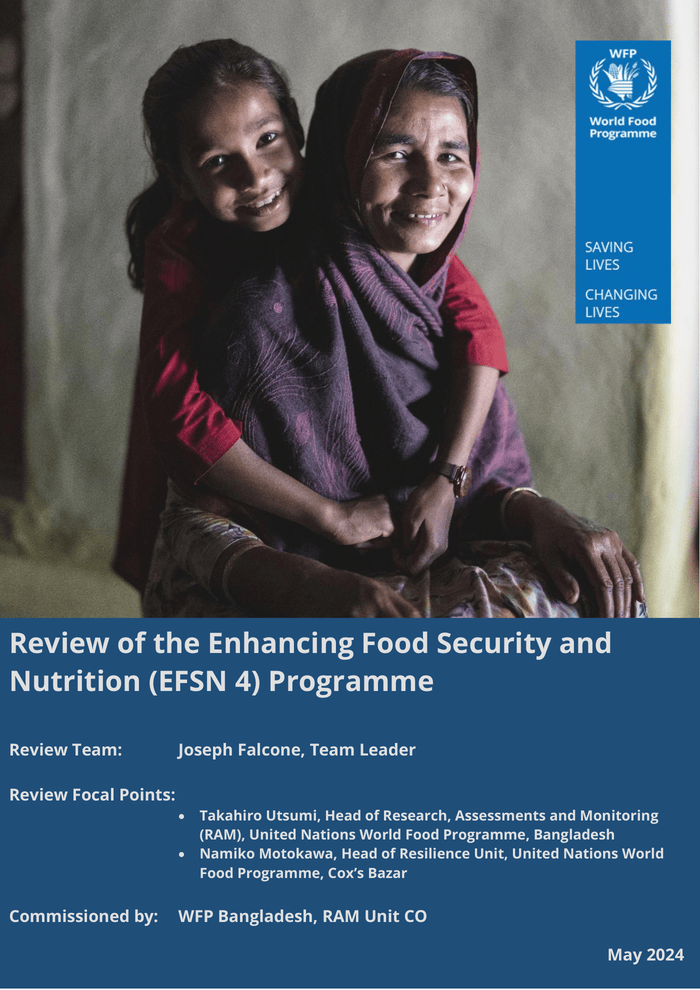executive summary
The EFSN 4 Livelihoods Program operated by WFP in Cox’s Bazar aimed to strengthen food security and nutrition among vulnerable women in five sub-districts. The fourth phase of the program, which was launched in 2014 and expanded in 2021, will target 10,000 households in Ukhiya and Teknaf and 15,000 households in three further sub-districts (Moheshkali, Pekua and Qutubdia). did. Host communities in Cox’s Bazar, considered the poorest in Bangladesh, were targeted, particularly female-headed households.
The program includes a one-time cash transfer to start up a business (after business planning) and a three-year intervention from 2021 to 2023, with a monthly stipend based on food needs ( 1,050 BDT), income generation training, life skills awareness, nutrition communication sessions, and service-market linkage support. The program emphasizes women as agents of change, aims for social and economic empowerment, and facilitates community integration of households affected by the Rohingya influx, COVID-19, and the global food crisis. doing.
The primary purpose of this EFSN 4 program review was to assess the performance of programmatic interventions, inform decision-making, and recommend improvements. Aligned with WFP evaluation criteria and the UN Standards on Gender Equality and Women’s Empowerment, this review sought to answer key questions about outcomes, implementation, and overall impact on ultra-poor women in target villages.
Investigation result
A review of the EFSN 4 program shows overall success in achieving the outlined goals, with a focus on poverty, food security, improved nutrition, and economic and social empowerment. The Research, Evaluation, and Monitoring (RAM) Unit managed the endline study conducted at MPK in September-October 2023 and identified 12 measurable impacts, outcomes, and results for program participation, including significant improvements in outcome indicators. Positive results were revealed for people. Household food consumption scores, food consumption nutrition scores, women’s minimum dietary diversity, and reduced coping strategies index (rCSI) all improved significantly. Economic empowerment indicators also showed significant improvements in women’s contribution to household income, household monthly income, productive asset value, and the Livelihood Coping Strategies Index (lCSI). 3 Improvements in social empowerment were observed in women’s independence, participation in income-generating activities, joint decision-making, and increased respect. These key findings were substantiated and validated in FGD and KII conducted as part of a three-week field trip to Cox’s Bazar in December 2023.But some

